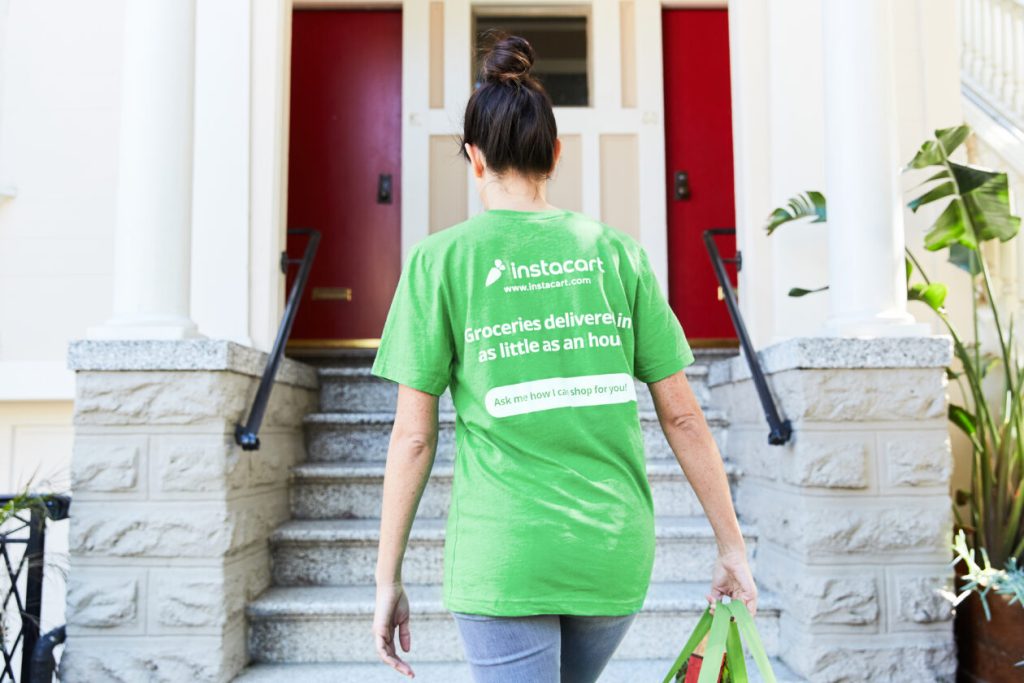The Clash Between Gig Economy Giants and Seattle’s Worker Protection Ordinance
Seattle’s pioneering legislation aimed at protecting gig workers from arbitrary deactivation by app-based platforms has sparked a legal battle with industry giants Instacart and Uber. The ordinance, passed in August 2023 and slated to take effect in January 2024, mandates a 14-day deactivation notice, justification based on reasonable policies, human review of all deactivations, and provision of records to affected workers. This move, hailed by worker advocacy groups as a crucial step towards fair treatment, has been met with strong opposition from companies like Instacart and Uber, who argue that it infringes upon their constitutional rights, federal laws, and operational efficiency. This sets the stage for a complex legal and political showdown that will significantly impact the evolving landscape of gig work.
Instacart and Uber have filed separate lawsuits in the U.S. District Court in Seattle seeking an injunction against the ordinance. Instacart’s suit echoes Uber’s concerns, alleging that the law contradicts their safety and efficiency protocols, potentially jeopardizing customer safety and worker privacy due to data disclosure requirements. They contend that the ordinance oversteps the boundaries of local regulation, conflicting with existing federal laws and established business practices. This legal challenge underlines the inherent tension between local government’s efforts to regulate the gig economy and the companies’ assertion of their operational autonomy. The outcome of this litigation will have substantial ramifications for the balance of power between these entities.
The core of the dispute lies in the contrasting perspectives on the power dynamics within the gig economy. Worker advocacy groups argue that companies wield excessive power to deactivate workers, often without sufficient justification or due process. They cite instances of workers being penalized for declining orders or being unavailable during specific times, leading to precarious employment conditions. The ordinance aims to address this perceived imbalance by introducing transparency and accountability into the deactivation process. Conversely, Instacart and Uber maintain that their deactivation policies are essential for maintaining service quality, ensuring worker and customer safety, and upholding their operational standards. They argue that the ordinance unduly restricts their ability to manage their workforce and respond to performance or safety concerns effectively.
This legal challenge is not the first instance of friction between Seattle and gig economy companies. Earlier in 2023, Instacart, Uber, and DoorDash clashed with the city over a minimum wage law for food delivery drivers. Furthermore, Instacart has a history of legal disputes with Seattle, including a 2020 lawsuit challenging a law mandating premium pay for drivers during the pandemic. In a separate matter, Instacart settled with the city earlier in 2024 for alleged violations of a gig worker sick time law, further highlighting the ongoing tension between the company and local regulations. This history of conflict underscores the broader debate over the appropriate level of government intervention in the gig economy.
Seattle’s assertive stance on regulating the gig economy reflects a growing national trend, with various municipalities exploring ways to address the unique challenges posed by this evolving labor market. The outcome of the lawsuits filed by Instacart and Uber will set a precedent for other cities considering similar legislation. It will also significantly impact the future of gig work, shaping the relationship between platforms, workers, and local governments. The court’s decision will determine the extent to which cities can regulate the operational practices of gig economy companies, balancing worker protections with business autonomy.
The legal battle unfolds against the backdrop of broader discussions concerning the classification of gig workers, the responsibility of platforms for worker well-being, and the role of government in safeguarding workers’ rights in the digital age. The outcome of these lawsuits will have profound implications, not only for Instacart and Uber but for the entire gig economy, potentially influencing future legislation and shaping the future of work for millions of individuals engaged in app-based employment. The court’s decision will play a crucial role in defining the balance between flexibility and security in this rapidly evolving sector. This case represents a pivotal moment in the ongoing evolution of labor law and the gig economy, with far-reaching consequences for workers, companies, and the regulatory landscape.


